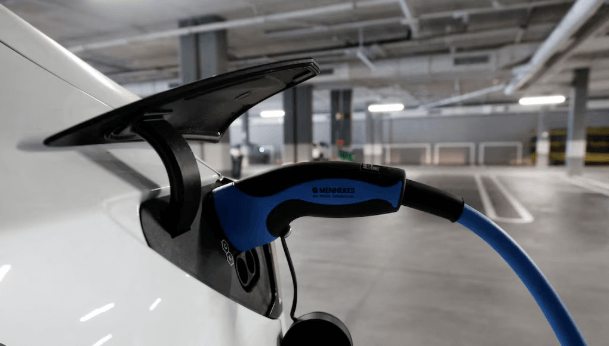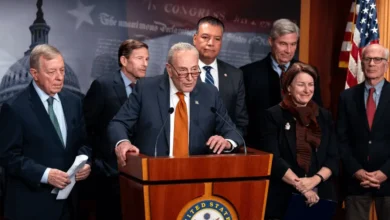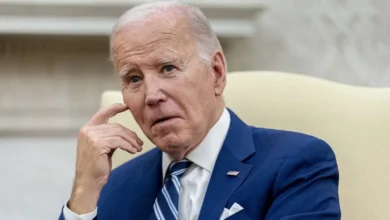Trump Transition Team Proposes Major Rollback of Biden’s EV and Emissions Policies

As Donald Trump prepares for his potential return to the White House, his transition team is pushing forward with an ambitious plan to dismantle many of President Joe Biden’s electric vehicle (EV) and emissions policies. The recommendations, seen exclusively by Reuters, include a series of measures aimed at scaling back support for electric vehicles, blocking stricter emissions rules, and shifting funds to bolster national defense priorities.
Trump’s Transition Team Seeks to Cut EV Support and Impose Tariffs on Battery Materials
The incoming Trump administration is gearing up to reverse key elements of Biden’s EV strategy, which sought to accelerate the U.S. transition to electric mobility while reducing the country’s dependence on China for critical battery materials. One of the most significant proposals from Trump’s transition team is to cut support for electric vehicles and charging stations—an effort to reduce government involvement in the sector.
A key component of the plan is to impose tariffs on all battery materials globally, an attempt to stimulate domestic production of electric vehicles and batteries in the U.S. These tariffs would impact the entire supply chain, particularly materials like lithium, cobalt, and nickel, which are essential for EV batteries. The team’s strategy also suggests negotiating exemptions with U.S. allies in an effort to boost local production while countering China’s dominance in the market.
Redirecting Funds from EV Initiatives to National Defense
In a sharp departure from Biden’s focus on clean energy and green technologies, the Trump transition team plans to reallocate funds that were earmarked for building charging stations and making EVs more affordable. Instead, the transition team proposes redirecting this money to support national defense priorities. This includes securing China-free supplies of critical battery minerals and investing in national defense infrastructure.
This shift could have significant implications for the U.S. automotive industry, which has increasingly embraced electric vehicles. The transition team aims to prioritize energy independence and security over environmental policies that could challenge fossil-fuel vehicles.
Rolling Back Emissions Standards and Blocking California’s Stricter Rules
Another key aspect of the proposed policy changes is the rollback of emissions standards set by the Biden administration, which aimed to make significant strides toward reducing carbon emissions in the U.S. transportation sector. The Trump team is seeking to eliminate tighter standards imposed under Biden, including those that aimed to make automakers shift toward electric vehicles.
Perhaps most controversially, the transition team is looking to block California’s stricter emissions regulations, which have historically influenced national policy on vehicle emissions. California, which has been at the forefront of the push for stricter environmental policies, will likely face significant pushback from the incoming Trump administration, potentially creating a new battleground between state and federal regulators.
Impact on U.S. EV Sales and Tesla’s Market Position
The potential rollback of EV incentives, including the elimination of the $7,500 federal tax credit for electric vehicle purchases, could directly affect U.S. EV sales and production. This would deal a blow to EV manufacturers, particularly legacy automakers such as General Motors (GM) and Hyundai, which have been introducing a wider array of electric models to the U.S. market.
While this could negatively impact EV sales, Tesla, the dominant U.S. EV maker, may be less affected. Tesla CEO Elon Musk has previously stated that the loss of government subsidies would hurt competitors more than his company. Musk, who played a significant role in supporting Trump’s campaign, might benefit from less government intervention, as he has already established Tesla as a leading brand with a loyal customer base.
The Strategy to Weaken China’s Influence Over U.S. EV Industry
One of the Trump transition team’s main focuses is reducing China’s influence over the U.S. electric vehicle market, particularly its dominance in the battery supply chain. By increasing tariffs on battery materials and pushing for stronger U.S.-based production, Trump aims to challenge China’s heavy subsidies and the growing Chinese EV industry.
The shift away from Biden’s policies, which sought to build a sustainable EV industry independent of China, marks a significant change in approach. Instead of prioritizing clean energy or environmental goals, the Trump plan focuses on reshaping the global supply chain to favor U.S. economic and defense interests.
Future of U.S. Electric Vehicles and Climate Policy Under Trump
If implemented, Trump’s proposed policies could dramatically alter the landscape for electric vehicles in the U.S. A decrease in government support for EV infrastructure, tax credits, and a potential loosening of emissions standards could slow the transition to electric mobility in favor of more traditional, fossil-fuel vehicles.
For manufacturers, these changes may create uncertainty and market volatility, as companies like General Motors, Ford, and others have invested heavily in electric vehicles. At the same time, the Trump transition team’s focus on bolstering U.S. production of critical minerals and reducing reliance on foreign suppliers could shift the balance in global competition, especially against China.
Conclusion: A Stark Policy Shift Away from Biden’s EV and Emissions Goals
Trump’s proposed rollback of Biden’s EV and emissions policies reflects his broader approach to reshaping U.S. economic and environmental priorities. By focusing on bolstering national defense and reducing reliance on foreign energy sources, Trump’s team aims to shift away from green energy initiatives in favor of more fossil-fuel-friendly policies.
As these proposals take shape, automakers, environmental groups, and consumers alike will be closely watching the evolving policy landscape to understand how it will impact the future of electric vehicles in the U.S. and the country’s overall environmental strategy.
See also: Biden’s Historic Clemency Move: A Step Toward Justice Reform and Redemption
Frequently Asked Questions (FAQs) About Trump’s Transition Team EV Policy Proposal
- What is Trump’s plan for electric vehicles?
Trump’s transition team proposes to cut support for EVs and charging stations, impose tariffs on battery materials, and eliminate Biden’s $7,500 tax credit for EV buyers. - How will the proposed changes impact U.S. electric vehicle sales?
The rollback of government incentives and support for EV infrastructure could reduce U.S. electric vehicle sales and slow down the EV transition. - What is the Trump transition team’s stance on emissions standards?
The team plans to roll back Biden’s stricter emissions standards, including blocking California’s more stringent rules. - How will tariffs on battery materials affect the EV industry?
Imposing tariffs on battery materials aims to encourage U.S. production of batteries and reduce reliance on foreign suppliers, particularly China. - Will Tesla be affected by the rollback of EV policies?
Tesla, led by Elon Musk, may be less affected than other manufacturers due to its established market presence and less reliance on subsidies. - What is the focus of the Trump transition team’s energy policy?
The focus is on reducing China’s influence in the U.S. EV industry, boosting domestic production of critical minerals, and prioritizing national defense over green energy policies.



